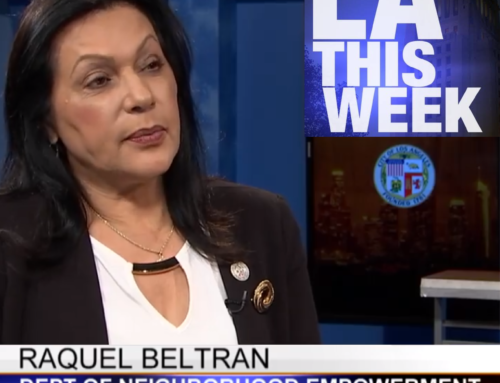Between August 17 and September 1, 2017, seven adult Mediterranean fruit flies (Medflies), Ceratitis capitata (Wiedemann), were trapped in the community of Sun Valley, Los Angeles County. Based on the survey data, pest biology, information from the California Department of Food and Agriculture (CDFA) Mediterranean Fruit Fly Science Advisory Panel (MedSAP), recommendations provided by the CDFA Primary State Entomologist, and the CDFA “Action Plan for Mediterranean Fruit Fly Ceratitis capitata (Wiedemann),” the CDFA concludes that an infestation of Medfly exists in the area.
A Program Environmental Impact Report (PEIR) has been certified which analyzes the Medfly treatment program in accordance with Public Resources Code, Sections 21000 et seq. The PEIR is available at http://www.cdfa.ca.gov/plant/peir/. The treatment activities described below are consistent with the PEIR. ‘
In accordance with integrated pest’ management principles, the CDFA has evaluated possible treatment methods and determined that there are no cultural methods available to eradicate Medfly. The CDFA will employ biological control via sterile insects as the primary tool, complemented by limited chemical control, and will additionally use physical control via host fruit removal when there is evidence that a breeding population exists on a property.
The treatment plan for the Medfly infestation will be implemented as follows:
- The sterile insect technique (SIT) makes use of sterile Medflies to prevent the production of viable offspring. The wild female Medflies mate with the sterile males and lay infertile eggs, thereby disrupting the breeding cycle and causing the population to be eliminated. Sterile flies are released by aircraft within a 3.5-mile radius around each detection site. Releases are repeated every three to four days for two life cycles of the fly (typically four to six months, dependent on temperature).
- Foliar bait treatments are used within 200 meters of each detection site in order to mitigate the spread of Medfly by eliminating those adult life stages not directly affected by SIT (i.e., mated females and sexually immature flies). Foliar bait ground treatments are a protein bait spray that contains an organic formulation of the pesticide spinosad (GF-120 NF Naturalyte® Fruit Fly Bait), and are repeated every seven to 14 days for one life cycle of the fly (typically two to three months, dependent on temperature). Please visit the CDFA website to learn more about the treatment process at http://www.cdfa.ca.gov/plant/videos/spinosad
- If evidence that a breeding population exists on a property (i.e., immature stages, mated female, or multiple adults), all host fruit from each detection site and all properties within a minimum of 100 meters of each detection site will be removed and disposed of in a
landfill in accordance with regulatory protocols. Fruit removal will occur once at the beginning of the project, but may be repeated if additional flies are detected.
Public Notification:
Any resident whose property will be treated via foliar bait sprays or host fruit removal will be notified in writing at least 48 hours in advance of any treatment, in accordance with the California Food and Agricultural Code Sections 5779. Following the treatment, completion notices are left with homeowners detailing precautions to take and post-harvest intervals applicable to any fruit on the property. For SIT applications, notification is given to the general public via mass media outlets such as newspapers or press releases, and information is posted at https://www.cdfa.ca.gov/plant/PDEP/treatment/medfly_treatment.html. Information concerning the Medfly project will be conveyed directly to concerned local and State political representatives and authorities via letters, emails, and/or faxes. Press releases, if issued, are prepared by the CDFA information officer and the county agricultural commissioner, in close coordination with the project leader responsible for treatment. Either the county agricultural commissioner or the public information officer serves as the primary contact to the media.
For any questions related to this program, please contact the CDFA toll-free telephone number at 800-491-1899 for assistance. This telephone number is also listed on all treatment notices.
Enclosed are the findings regarding the treatment, map of the treatment area, work plan, and an integrated pest management analysis.
To view the complete Official Notice for the Sun Valley click here






